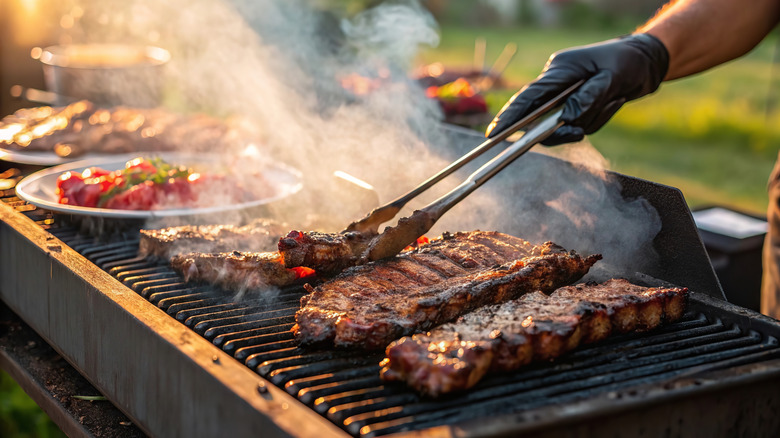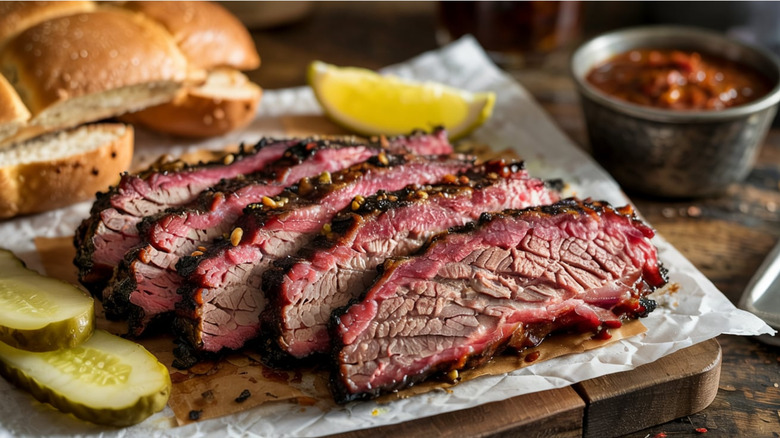How Jewish BBQ Keeps Things Kosher
In a world where barbecue often revolves around pork — ribs, sausages, and hot dogs — Jewish barbecue has carved out its own lane, and it's one where traditional dietary laws meet Southern culinary customs. Keeping barbecue kosher doesn't solely entail swapping out pork for beef, as it's a detailed process rooted in respect for both the food and the faith.
Jewish barbecue brings all the smoky goodness you expect from classic barbecue, especially brisket, which is a fixture in both Jewish and Southern kitchens, but it does so within the boundaries of Kashrut, or kosher dietary restrictions. That means no pork, no shellfish, no mixing meat and dairy, and only using meat that's been slaughtered and processed under kosher supervision. Even smokers and grills need to be kosher, which means cooking only kosher food and/or properly kashered (cleansing them with intense heat to meet kosher standards) before use.
Jewish barbecue also reimagines sides and sauces to stay in line with kosher rules. That means no butter-based sauces, no mac and cheese, and no dairy-laced coleslaw. Instead, you'll see tangy, vinegar-forward slaws, non-dairy baked beans, and sauces built on tomato and spice instead of cream.
It's worth noting that some Jewish pitmasters see kosher laws as a challenge worth mastering. You'll see that in everything from Texas-style brisket to Memphis-style dry rubs (minus the butter), Jewish barbecue is a legit barbecue tradition with its own flavor, rules, and loyal following.
What makes brisket the star of Jewish BBQ
For Jewish barbecue, brisket isn't just a crowd pleaser; it's actually a sort of cultural bridge. Brisket has long been a mainstay on Jewish holiday tables, often braised and served in a rich sauce. When barbecued, though, brisket is smoked for hours until it's tender enough to fall apart with a slight nudge from a fork. Jewish pitmasters have embraced this Southern-style treatment of brisket not just because it's incredibly delicious, but also because it naturally fits into kosher cooking. It isn't the type of meat that you would grill, so it's great because it's beefy and works really well with spice rubs and smoke.
In both Jewish and Southern food traditions, brisket is a cut that demands patience and skill. In this particular case, that long stretch of time that it takes to smoke a brisket makes it a perfect centerpiece for a kosher barbecue, where the technique is just as important as the ingredients. Whether you serve it with pickles and white bread, or tucked into challah buns with mustard and slaw, smoked kosher brisket is always a W on the table.
More importantly, it offers a way for observant Jews to fully participate in the culture of barbecue without breaking dietary laws. It's the kind of dish that brings people together at festivals, Shabbat dinners, or backyard barbecues. Togetherness and community is at the heart of Jewish culture, and what better way to come together than with a delicious meal?

